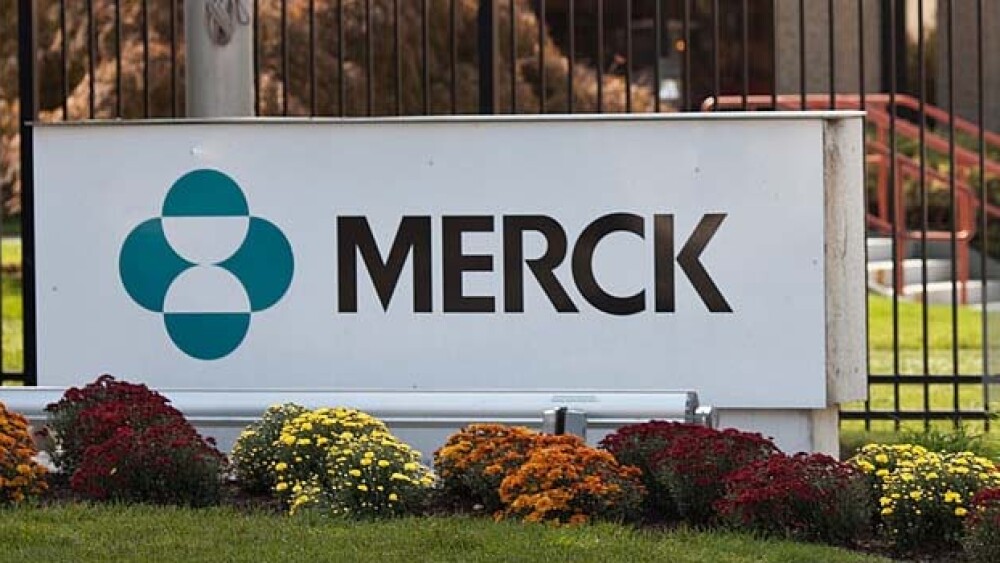Merck’s Keytruda came up short in a pivotal Phase III trial as a second-line treatment for patients with advanced gastricadenocarcinoma or GEJ adenocarcinoma.
Three months after the U.S. Food and Drug Administration gave Merck’s Keytruda the go-ahead for two types of gastric cancer, the drug came up short in a pivotal Phase III trial as a second-line treatment for patients with advanced gastric or gastroesophageal junction (GEJ) adenocarcinoma.
Merck said Keytruda, a PD-1 inhibitor, failed to meet its primary endpoint of overall survival. Not only that, but the drug failed to show any statistical significance in progression free survival, Merck announced late Thursday.
The results of the Phase III are disappointing to Merck. The company had been seeking approval to use Keytruda as a second-line drug in gastric cancer. In September, it was approved as a third-line treatment for previously treated patients with recurrent locally advanced or metastatic gastric or gastroesophageal junction cancer whose tumors express PD-L1 with disease progression on or after two or more prior lines of therapy including fluoropyrimidine- and platinum-containing chemotherapy and if appropriate, HER2/neu-targeted therapy.
In the Phase III Keynote-061 trial, Keytruda was being investigated as a monotherapy treatment versus Celgene’s Abraxane (paclitaxel) in patients with advanced gastric or GEJ adenocarcinoma whose disease progressed after first-line treatment with platinum and fluoropyrimidine doublet therapy.
Although Keytruda failed the Phase III Keynote-061 trial, the company said it will continue to evaluate the checkpoint inhibitor in other trials, including Keynote-062. That trial is a Phase III evaluating Keytruda as a monotherapy or in combination with chemotherapy as a first-line treatment for patients with PD-L1 positive advanced gastric or gastroesophageal junction cancer. Additionally, the company said Keynote-585, a Phase III trial studying Keytruda in combination with chemotherapy in a neoadjuvant/adjuvant setting, will also be a key evaluation of the drug.
“We remain committed to the continued study of Keytruda for gastric cancers and finding new options for patients facing this difficult-to-treat cancer type across various treatment settings,” Merck Research Laboratories Chief Medical Officer Roy Baynes, said in a statement.
Gastric cancer is a slowly progressing disease, developing over many years. There are approximately 952,000 cases of gastric cancer diagnosed annually across the globe. Gastric cancer is estimated to cause 723,000 annual deaths worldwide. It is estimated that in 2017, more than 10,000 people will die from gastric cancer in the U.S. alone, Merck said.
Baynes said the company will share fill results from the Keynote-061 trial at a later conference. He said the trial data will provide the medical community with “important information about how patients with gastric cancer whose tumors express PD-L1 respond to treatment.”
Keytruda has been approved by the FDA to treat several types of cancer, including lung cancer, bladder cancer, melanoma and refractory classical Hodgkin lymphoma cancer. While the drug has won a number of approvals, it has also experienced a number of setbacks. In July, it failed to meet endpoints in a Phase III head and neck cancer study. Earlier in July, the FDA placed a clinical hold on three clinical trials using Keytruda following the report of patient deaths in June. Merck said its Keynote-183, Keynote-185 and Keynote-023 trials were halted by the FDA after the Data Monitoring Committee discovered more patient deaths were observed in the Keytruda arm.





